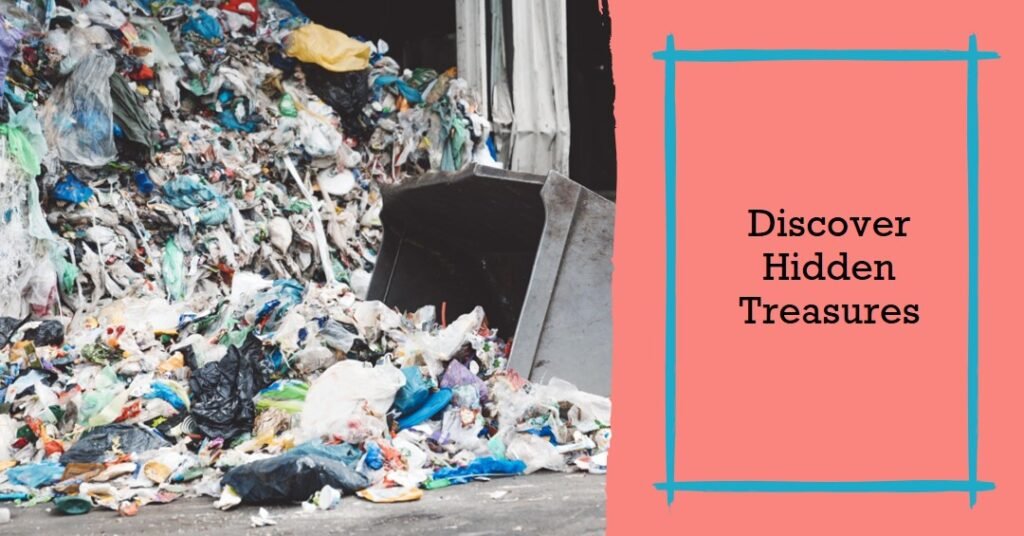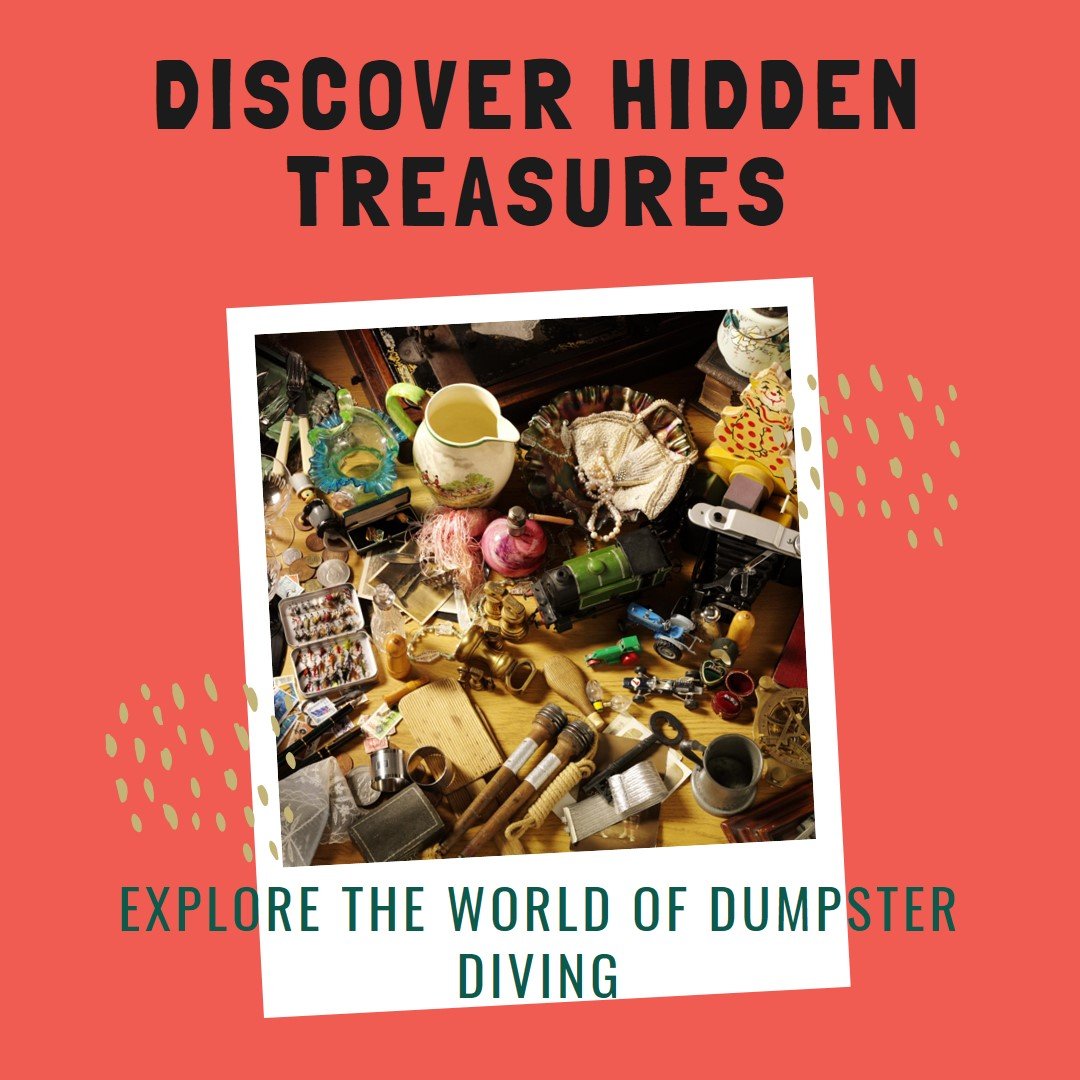When you engage in dumpster diving, you are essentially searching through discarded items in dumpsters or bins to find things that are still usable or valuable. It’s a way to reduce waste and find items that others may have discarded but are still in good condition.
Is Dumpster diving illegal in New South Wales?
Yes, dumpster diving can be illegal in New South Wales. While the laws can vary across different areas within the state, some places consider dumpster diving as trespassing or stealing. It’s essential to be aware of the specific regulations in your local area before engaging in dumpster diving activities to avoid any potential legal issues.
Remember to always be cautious and respectful when dumpster diving in New South Wales to ensure you are abiding by the laws and being considerate of others.
Is Dumpster diving illegal at Nighttime in New South Wales?
Yes, dumpster diving can be illegal at nighttime in New South Wales. It’s crucial to be aware of the legal implications of dumpster diving, especially during nighttime when trespassing regulations might be enforced more strictly. Make sure to research and understand the specific laws and regulations in your local area to avoid any potential legal issues.
Reducing Waste and Promoting Sustainability
Engaging in dumpster diving not only allows you to find valuable items but also plays a role in reducing waste and promoting sustainability. By rescuing items that are still usable, you are contributing to the overall efforts of waste reduction and environmental preservation. It’s a way to give a second life to items that would have otherwise ended up in landfills, promoting a more sustainable lifestyle.

Best Practices for Safe and Responsible Dumpster Diving
When engaging in dumpster diving, it is important to prioritize your health and safety. Always wear gloves and sturdy shoes to protect yourself from sharp objects or hazardous materials. Make sure to avoid items that may pose a health risk, such as expired food or chemicals. Additionally, be mindful of your surroundings and watch out for any potential dangers in the dumpster area.
Etiquette and Ethics
Maintain good etiquette while dumpster diving by being respectful of the property and not leaving a mess behind. If you encounter locked bins or signs prohibiting diving, it’s best to abide by the rules and avoid those areas. Remember to only take what you need and leave the rest for others. Practicing responsible diving not only helps maintain a positive reputation for divers but also ensures continued access to these resources for everyone.
Popular Dumpster Diving Spots in New South Wales
New South Wales offers a variety of locations that are ideal for dumpster diving, a practice where individuals search through dumpsters or trash bins for discarded but still useful items. From urban areas to retail and food outlets, here are some of the best spots for dumpster diving in New South Wales.
- Industrial Districts: These areas often have high turnover rates for goods, making them ideal for dumpster diving. Explore warehouses and factories for discarded items.
- Apartment Complexes: Residents of apartment buildings often discard items during moves or renovations, providing opportunities for divers to find furniture, electronics, and household goods.
- University Campuses: Educational institutions may discard textbooks, office supplies, and electronics. Dumpster diving in these locations can provide educational resources and materials.
Retail and Food Outlets:
- Supermarkets: Target supermarkets for discarded food items, including packaged goods, fresh produce, and more. This helps reduce food waste and promotes sustainable consumption.
- Bakeries: Bakeries may discard unsold baked goods, providing an opportunity for divers to find food items that are still edible.
- Cafes: Cafes often discard food items, kitchen equipment, and furniture. Dumpster diving at these locations can provide food and resources for those in need or looking to reduce waste.
Remember, it’s important to prioritize safety and respect property rights when dumpster diving. Always obtain permission when necessary and be mindful of any legal restrictions or private property boundaries.

Treasures Found While Dumpster Diving
The types of treasures that can be found through dumpster diving vary widely depending on the location and the items discarded by individuals or businesses. Here are some common categories of treasures often found through dumpster diving:
- Electronics and Gadgets: Items like laptops, tablets, smartphones, and chargers are frequently found in dumpsters, especially in urban areas or near electronics stores.
- Clothing and Accessories: Clothing items, shoes, and accessories like belts, scarves, and jewelry can be found in good condition, particularly behind retail stores or donation centers.
- Furniture and Home Goods: Items such as chairs, tables, lamps, and home decor are commonly found in apartment complexes or near residential areas.
- Food and Beverages: Non-perishable food items, canned goods, and beverages may be discarded by supermarkets, restaurants, or cafes.
- Books and Educational Materials: Textbooks, novels, magazines, and other reading materials are often thrown away by educational institutions, libraries, or bookstores.
- Toys and Games: Children’s toys, board games, and puzzles can often be found in good condition, especially in residential areas or near schools.
- Tools and Building Materials: Construction sites, hardware stores, or residential areas can yield tools, wood, metal, and other building materials.
- Sports and Outdoor Equipment: Bicycles, sports equipment, camping gear, and outdoor furniture are sometimes discarded and can be found in good condition.
- Art and Craft Supplies: Items like canvases, paint, yarn, and other art supplies are occasionally discarded by art studios, schools, or craft stores.
- Pet Supplies: Items like pet food, toys, and accessories can sometimes be found behind pet stores or in residential areas.
- Musical Instruments: Dumpster diving near music stores or educational institutions might yield musical instruments or accessories.
It’s important to note that while these treasures can be found, it’s crucial to prioritize safety, hygiene, and legal considerations when dumpster diving.
Tips for Successful Dumpster Diving
Stay Hygienic
- Bring Hand Sanitizer: It’s important to keep your hands clean, especially when handling items from dumpsters. Carry hand sanitizer or wipes to maintain hygiene.
- Wear Protective Gear: In addition to gloves, consider wearing long sleeves and pants to protect your skin from sharp objects or potential contaminants.
- Inspect Items: Before taking anything, inspect items for cleanliness and any signs of damage or wear. Be cautious of broken glass or other hazards.
Stay Safe
- Be Aware of Surroundings: Pay attention to your surroundings and be cautious of any potential safety hazards, such as unstable piles of items or uneven ground.
- Avoid Overloading: Be mindful of the weight of the items you’re carrying, especially if you’re diving alone. Overloading yourself can lead to accidents or injuries.
Stay Legal
- Respect Property Rights: Dumpster diving is generally legal in New South Wales, but it’s important to respect property rights. Avoid trespassing on private property and be aware of any local regulations or restrictions.
- Dispose of Trash Properly: If you create any trash while diving, dispose of it properly. Leaving a mess behind can lead to negative perceptions of dumpster diving and may even result in legal consequences.
Stay Respectful:
- Be Mindful of Others: If you’re diving in a public area, be considerate of others. Avoid diving in places where you may cause a disturbance or inconvenience to others.
- Leave No Trace: After diving, leave the area as you found it. This includes closing dumpster lids and resealing trash bags if you’ve inspected their contents.
By following these tips, you can have a successful and safe dumpster diving experience in New South Wales. Remember to prioritize safety, respect property rights, and practice good hygiene and etiquette.

Community and Resources for Dumpster Diving Enthusiasts in New South Wales
When you’re exploring the world of dumpster diving in New South Wales, connecting with like-minded individuals through online forums and groups can be incredibly beneficial. These platforms provide a space for enthusiasts to share their experiences, exchange tips, and even arrange meetups for group dives. Embrace the sense of community these forums offer by engaging with fellow divers, asking questions, and learning from their insights. Remember to always be respectful and considerate in your interactions, fostering a supportive environment for everyone involved.
Sharing Tips and Finds
One of the joys of dumpster diving is discovering hidden treasures and useful items that others may have discarded. By sharing your own tips, tricks, and finds with the dumpster diving community in New South Wales, you not only contribute to the collective knowledge but also inspire others to continue exploring. Whether it’s a unique find, a safety precaution, or a location recommendation, your contributions can help enhance the diving experience for everyone. Keep the spirit of camaraderie alive by celebrating each other’s successes and learning from one another.
How much money can you make from Dumpster diving in New South Wales?
The amount of money one can make from dumpster diving in New South Wales varies widely and depends on several factors, such as the value and condition of the items found, local regulations, competition from other divers, and the time invested in the activity. It is important to note that dumpster diving is not a guaranteed source of income and can be inconsistent. However, some individuals have reported making anywhere from $350 to $900 per month by selling salvaged items online or at flea markets.
It is advisable to research local laws and market demands before embarking on dumpster diving as a source of income. Additionally, divers should prioritize safety and respect property rights, obtain permission when necessary, and be mindful of their surroundings to avoid potential legal issues.
Conclusion
Dumpster diving in New South Wales offers an opportunity to reduce waste, find valuable items, and contribute to sustainability. However, divers should be aware of the legal implications, prioritize safety, and respect property rights. By following best practices, engaging with the community, and staying informed, dumpster diving can be a rewarding and responsible activity.
Find Dumpster diving legality in your city
Choose your city to find all the details about the legality of dumpster diving in Australia:

Greetings, eco-conscious explorers! I am Arjun Bandari, a seasoned Dumpster Diving enthusiast with over a decade of expertise in uncovering hidden treasures amidst the discarded. My journey into this unconventional lifestyle began in New York, fueled by a passion for sustainability and a desire to challenge the norms of our throwaway culture.
With a bachelor’s in Enviromental Health and Safety, I seamlessly blend academic insights with practical experiences to navigate the world of Dumpster Diving. Over the years, I’ve become a recognized figure in the sustainable living community, sharing my discoveries and insights through workshops, community outreach, and various online platforms.
My commitment to promoting eco-friendly practices has garnered attention from local and regional media, earning me featured spots in publications that highlight the environmental impact of Dumpster Diving. As an advocate for responsible waste management, I have been honored with awards recognizing my contributions to the field.
In addition to my hands-on experiences, I’ve extended my reach through various published works, shedding light on the untapped potential within discarded items. Whether it’s repurposing furniture, salvaging electronics, or sharing practical tips for fellow Dumpster Diving enthusiasts, I am dedicated to inspiring a conscious and sustainable way of living.
Join me on this exciting journey as we redefine the narrative around waste, discover hidden gems, and collectively contribute to a greener, more sustainable future. Together, let’s dive into the world of Dumpster Diving and uncover the beauty beneath the surface of our disposable society.

